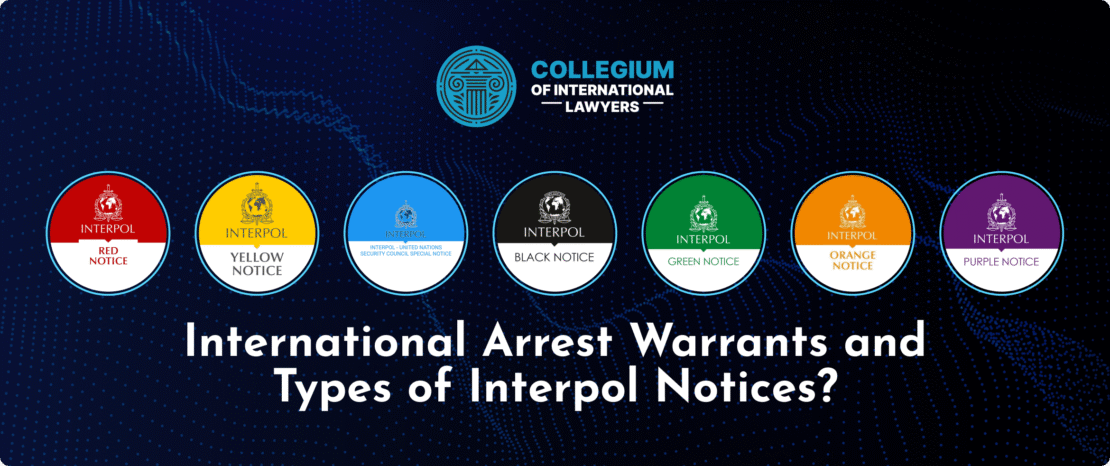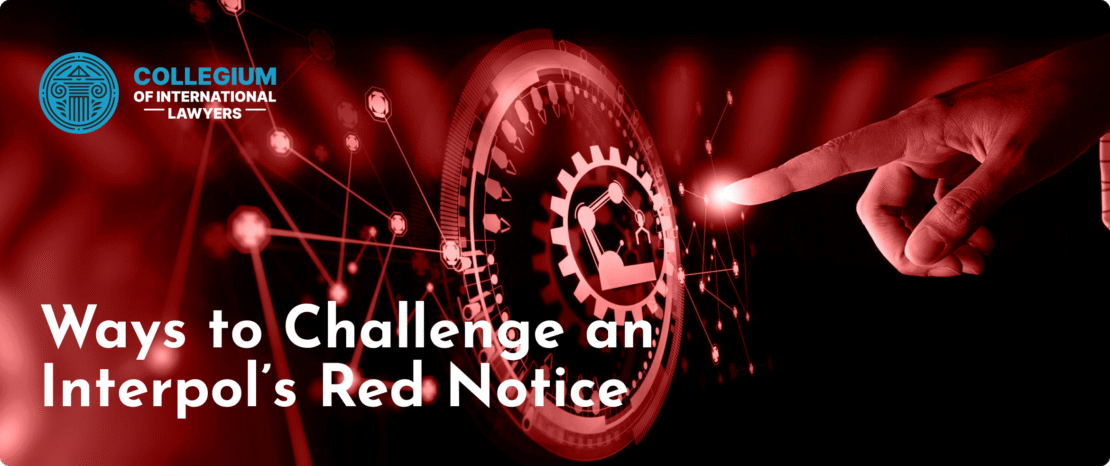Legal Safeguards for Companies Protecting Your Business in a Complex World 367242110

Legal Safeguards for Companies: Protecting Your Business in a Complex World
In the modern business environment, companies face a myriad of legal challenges and potential threats. From regulatory compliance to financial crimes, the risks are significant. Legal safeguards are essential for protecting businesses and ensuring long-term success. This article will explore some of the fundamental legal measures that companies should implement to shield themselves from various threats, including financial crimes. For comprehensive insights on protecting your business from such crimes, visit legal safeguards for companies www.femalefirst.co.uk/money/protecting-business-financial-crimes-1406927.html.
Understanding Legal Safeguards
Legal safeguards refer to the measures and practices that companies adopt to protect themselves from legal risks. These measures can include compliance with laws and regulations, sophisticated contract management, risk management strategies, and the establishment of internal controls. Each of these components plays a crucial role in safeguarding a business from potential liabilities and threats.
1. Compliance with Laws and Regulations
One of the most fundamental aspects of legal safeguarding is compliance. Companies must adhere to a range of laws and regulations that govern their operations. This includes industry-specific regulations, employment laws, environmental laws, and consumer protection laws. Failing to comply with these regulations can result in severe penalties, including fines and litigation.
To ensure compliance, businesses should conduct regular audits and training sessions for employees. Establishing a compliance officer role can also be beneficial in monitoring changing regulations and maintaining adherence across the organization.
2. Drafting and Managing Contracts
Contracts are the backbone of any business agreement, and having robust contracts in place is vital in safeguarding interests. Well-drafted contracts clearly outline the rights and responsibilities of each party involved. This helps prevent disputes and misunderstandings, which can lead to costly litigation.
It is essential to engage legal experts when drafting contracts to ensure they are comprehensive and enforceable. Furthermore, companies should actively manage and review contracts regularly to adapt to any changes in laws or business operations.
3. Risk Management Strategies
Risk management is a proactive approach to identifying and mitigating potential threats to a company. Businesses should conduct risk assessments to understand the various types of risks they face, including legal, financial, operational, and reputational risks. By recognizing these risks, companies can implement strategies to minimize their impact.

This may involve purchasing insurance policies, establishing contingency plans, and developing crisis management strategies. Ensuring that all employees are aware of potential risks and how to respond to them is also crucial in maintaining a resilient business structure.
4. Employee Training and Conduct Policies
Employees play a critical role in safeguarding a company against legal issues. As such, companies must invest in training programs that educate employees about legal obligations, ethical conduct, and compliance policies. Awareness and education are key to preventing violations that could expose the company to legal liabilities.
Organizations should also establish clear conduct policies that outline acceptable behaviors and the consequences of violations. Having a zero-tolerance policy towards unethical behavior can deter misconduct and promote a culture of integrity.
5. Protecting Intellectual Property
Intellectual property (IP) is often one of a company’s most valuable assets. Protecting IP through patents, trademarks, and copyrights is essential to maintain a competitive advantage. Infringement of intellectual property rights can lead to significant financial losses and damage to a company’s reputation.
Companies should regularly review their IP portfolios and consider legal action against infringers to protect their rights. Consulting with IP attorneys can help businesses navigate the complexities of intellectual property law and develop effective protection strategies.
6. Data Protection and Privacy Compliance
In an increasingly digital world, data protection and privacy compliance have become paramount for businesses. Companies must adhere to regulations such as the General Data Protection Regulation (GDPR) and other local privacy laws. These regulations govern how organizations collect, store, and process personal data.
Businesses should implement comprehensive data protection policies and ensure that employees are trained in data handling best practices. Regular audits and assessments can help identify vulnerabilities in data security and ensure compliance with applicable laws.
Conclusion
In conclusion, implementing legal safeguards is fundamental for protecting a business in today’s complex legal landscape. From compliance with laws to managing contracts and protecting intellectual property, companies must adopt a proactive approach to minimize legal risks. By investing in legal safeguards, organizations can enhance their resilience, maintain their reputation, and ensure long-term success.
Legally Reducing Tax Penalties A Comprehensive Guide 377381891

Understanding How to Legally Reduce Tax Penalties
In the complex world of taxes, many individuals and businesses find themselves facing penalties that can lead to significant financial strain. reducing tax penalties legally is not just about avoiding consequences; it’s about understanding your rights and the options available to you. This article aims to shed light on various strategies that can help taxpayers navigate the treacherous terrain of tax penalties while remaining compliant with the law.
What Are Tax Penalties?
Tax penalties are fines imposed by the IRS or state tax authorities for various reasons, including late payment of taxes, failure to file returns, or inaccuracies in tax reporting. These penalties can be quite severe, leading to increased financial burden. Understanding the types of tax penalties is crucial to knowing how to address them effectively.
Types of Tax Penalties
- Failure to file: Occurs when a taxpayer does not file their tax return by the deadline.
- Failure to pay: Imposed when a taxpayer does not pay their taxes owed on time.
- Accuracy-related penalties: Levied for underreporting income or claiming improper deductions.
- Fraud penalties: These are more severe and are charged if the IRS determines that a taxpayer deliberately attempted to evade taxes.
Understanding Your Rights
When faced with tax penalties, it’s important to know your rights as a taxpayer. The IRS is obligated to provide you with clear communication regarding the penalties you face. Moreover, taxpayers have the right to appeal penalties they believe are unwarranted. Understanding these rights is the first step in effectively managing tax penalties.
Strategies to Legally Reduce Tax Penalties
There are several strategies you can consider to legally reduce the tax penalties you might be facing:

1. File Your Return Promptly
Even if you cannot pay the full amount owed, it is advisable to file your tax return on time. Filing late can lead to additional penalties. If you have a financial hardship, you may also request an extension on your filing deadline.
2. Make Partial Payments
If you cannot pay your tax liability in full, consider making smaller payments. The IRS offers payment plans and accepts partial payments, which can help lessen the immediate burden of your tax liabilities.
3. Request Penalty Abatement
Taxpayers can request penalty abatement from the IRS. This process involves providing evidence of reasonable cause, such as illness, natural disasters, or other extenuating circumstances that prevented compliance. If approved, abatement can significantly reduce the penalties owed.
4. Seek Professional Help
Engaging a tax professional, such as a certified public accountant (CPA) or a tax attorney, can be invaluable. They have the expertise to navigate complex tax laws and can help build your case for penalty abatement or negotiate on your behalf.
5. Appeal the Penalty
If you believe a penalty has been imposed erroneously, you have the right to appeal. The appeal process requires you to provide sufficient evidence to support your case. This may include documentation, correspondence, or other relevant materials.
6. Stay Informed

Tax laws and regulations are constantly changing. Staying informed about these changes can help you avoid penalties in the future. Regularly review IRS publications, attend tax workshops, or consult tax professionals who keep up with the latest updates.
Preventing Future Tax Penalties
Once you have navigated your current situation, it is essential to implement measures to prevent future penalties:
1. Keep Accurate Records
Maintain organized records of all financial documents, including income statements, receipts, and tax returns. Accurate bookkeeping can drastically reduce the chances of errors when filing taxes.
2. Use Technology
Many software programs can aid in tax preparation and will alert you to potential issues before filing your return. These tools can help to ensure that you are compliant with all tax obligations.
3. Schedule Regular Consultations with Tax Professionals
Establishing a relationship with a tax professional can provide ongoing insight and assistance with tax matters throughout the year, not just during tax season.
Conclusion
Reducing tax penalties legally is not just about understanding the laws but also being proactive and taking advantage of the options available to you. By approaching the situation with knowledgeable strategies, you can mitigate your financial burdens while remaining compliant. Whether you opt to appeal a penalty, seek professional assistance, or stay informed about your rights, the key is to act promptly and purposely. With diligence and the right approaches, you can navigate the complexities of taxation without falling victim to severe penalties.
Legally Reducing Tax Penalties Essential Strategies for Taxpayers

Legally Reducing Tax Penalties: Essential Strategies for Taxpayers
Tax penalties can be a heavy burden for many individuals and businesses. Understanding the legal avenues available for reducing these penalties is crucial for maintaining financial health. Many taxpayers find themselves facing unexpected tax liabilities, but there are legitimate strategies to mitigate the impact. This article will provide an in-depth look at the various ways to reduce tax penalties legally, including options available through the IRS. We will also discuss the importance of understanding reducing tax penalties legally IRS relief options explained for those looking to alleviate their tax burdens.
Understanding Tax Penalties
Before delving into strategies for reduction, it’s essential to understand tax penalties. Tax penalties are fees imposed by the IRS or state tax authorities for failing to comply with tax obligations. Common reasons for these penalties include:
- Late filing of tax returns
- Late payment of taxes owed
- Failure to pay the correct amount of tax
- Underpayment of estimated tax
Each of these penalties can significantly impact your financial situation. Therefore, awareness of potential penalties can motivate taxpayers to comply with tax laws and seek help when necessary.
Strategies for Reducing Tax Penalties
1. File Your Tax Returns on Time
The most straightforward way to avoid penalties is to file your tax returns on time. If you cannot pay the total amount due, it’s better to file the return by the deadline and pay what you can. This action can help mitigate any late filing penalties.
2. Request an Extension
If you need more time to prepare your taxes, requesting an extension can be beneficial. An extension allows you to file your return later, preventing late filing penalties. However, note that an extension to file is not an extension to pay; you must estimate and pay any taxes owed by the original due date.

3. Explore IRS Penalty Abatement
IRS penalty abatement is a program designed to reduce or eliminate penalties under certain circumstances. Taxpayers may qualify for abatement if they can demonstrate reasonable cause for their failure to meet tax obligations. This could include:
- Serious illness
- Natural disasters
- Death or incapacitation of the taxpayer or an immediate family member
- Unavoidable absence
To explore this option, it’s essential to properly document your circumstances and file the appropriate forms with the IRS.
4. Set Up a Payment Plan
If you owe taxes and cannot pay in full, consider establishing a payment plan. The IRS offers several payment arrangements that allow taxpayers to pay owed taxes over time. By setting up a payment plan, you can avoid additional penalties for non-payment.
5. Appeal IRS Decisions
If you believe a penalty has been incorrectly assessed, you have the right to challenge it. The IRS provides a formal appeals process that allows you to present your case. Be prepared with documentation supporting your claim, and follow IRS procedures closely.
The Importance of Professional Assistance
For many taxpayers, navigating the complexities of tax law can be daunting. Engaging a tax professional can be a wise investment. Tax professionals possess the expertise necessary to evaluate your specific situation and provide tailored advice. Whether you are facing a substantial penalty or simply seeking ways to optimize your tax situation, consulting with an expert can provide clarity and direction.
Conclusion
Reducing tax penalties legally is achievable through various strategies, ranging from timely filing to exploring IRS relief options. By understanding your rights and available resources, you can better manage your tax obligations and alleviate the burden of penalties. Remember, always keep accurate records, stay informed about tax laws, and seek professional assistance if needed. By taking proactive measures, you not only safeguard your financial well-being but also create a more informed approach to your future tax obligations.
Legally Reducing Tax Penalties Strategies and Insights 362307907

Legally Reducing Tax Penalties: Strategies and Insights
Tax season can be a daunting time for many individuals and businesses alike. One of the most stressful aspects can be the fear of incurring tax penalties. Understanding how to navigate the complexities of tax laws can save you from facing hefty fines. It’s crucial to know that there are legal avenues available for reducing tax penalties. In this article, we will explore various strategies and insights into legally minimizing your tax burdens, including a thorough look at concepts like penalty abatement and reasonable cause, as well as practical steps you can undertake to protect your finances. For further detailed guidelines, you can refer to reducing tax penalties legally www.grapevinebirmingham.com/penalty-abatement-law-and-handling-a-comprehensive-guide/.
Understanding Tax Penalties
Tax penalties are financial charges imposed by the government when taxpayers fail to meet their tax obligations. These can arise from various situations, including late payments, filing errors, or underreporting income. Understanding the types of tax penalties can help taxpayers identify potential areas where they might be at risk.
- Failure to File Penalty: This penalty is imposed when a tax return is not submitted to the IRS by the deadline.
- Failure to Pay Penalty: This applies when a taxpayer does not pay the taxes owed by the due date.
- Accuracy-Related Penalty: This penalty is assessed for substantial inaccuracies in tax returns, whether due to negligence or substantial understatement of income.
Common Reasons for Tax Penalties
Many taxpayers incur penalties due to circumstances that can sometimes be mitigated. Common reasons include:
- Lack of Understanding: The tax code is complex, and many individuals do not fully understand their obligations.
- Forgetting or Miscalculating: People often forget to report certain income or make mistakes in calculating their liabilities.
- Financial Hardships: Economic difficulties can lead to an inability to pay taxes on time.
Legal Ways to Reduce Tax Penalties
There are several effective legal methods to reduce or eliminate tax penalties. Utilizing these strategies can give taxpayers peace of mind and potentially save thousands in penalties.
1. Penalty Abatement
Penalty abatement is one of the most common methods used to reduce penalties. The IRS allows for penalty abatement under certain conditions. For example, if a taxpayer has a good history of compliance and faces a first-time penalty, they may qualify for relief. To request penalty abatement, a taxpayer must provide a valid reason and necessary documentation to support the request.

2. Reasonable Cause
If a taxpayer can demonstrate reasonable cause for their failure to comply with tax regulations, they might avoid penalties. Examples of reasonable cause can include natural disasters, serious illness, or other uncontrollable events that hamper someone’s ability to file or pay taxes on time.
3. Installment Agreements
If you cannot pay your taxes in full, consider setting up an installment agreement with the IRS. This will allow you to make smaller, manageable payments over time. Engaging in such agreements can help alleviate penalties related to failure to pay.
4. Offer in Compromise
An Offer in Compromise (OIC) allows taxpayers to settle their tax liabilities for less than the full amount owed. However, eligibility requires that the IRS believes the amount owed is not collectible or that settling for less is in the best interest of both parties.
5. Seek Professional Help
Engaging with a tax professional or an attorney who specializes in tax law can provide valuable assistance in navigating the complexities of your situation. They can advocate on your behalf, particularly in representing you during discussions with the IRS.
Mistakes to Avoid When Addressing Penalties
While trying to rectify tax penalties, taxpayers should be wary of common pitfalls:
- Ignoring the Problem: Procrastination can lead to further complications and additional penalties.
- Not Documenting Communications: Keeping records of all communications with the IRS can be vital in resolving disputes.
- Rushing to Make Payments: Ensure you understand the total amount owed and any potential penalties before making payments.
Conclusion
Tackling tax penalties can be overwhelming, but understanding your options for legally reducing these penalties can empower you to take action. Whether through penalty abatement, reasonable cause claims, or installment agreements, every taxpayer should be aware of the tools at their disposal. Consulting with a tax professional can provide clarity and ensure that you navigate the tax landscape effectively, minimizing potential liabilities. Remember, being proactive and informed is your best defense against tax penalties.
Enhancing Global Security Interpol’s Control Over Financial Operations

Enhancing Global Security: Interpol’s Control Over Financial Operations
In today’s globalized world, financial operations transcend borders, making them susceptible to various forms of crime, including money laundering, fraud, and terrorism financing. As a response to these growing challenges, international organizations have stepped up their efforts to monitor and regulate financial operations. One such organization is Interpol, which has been at the forefront of enhancing financial operations control across nations. For a deeper insight into Interpol’s measures, you can visit Interpol financial operations control www.hill.ru/press-center/interpol-usilivaet-kontrol-za-mezhdunarodnymi-finansovymi-operatsiyami/.
Interpol, formally known as the International Criminal Police Organization, has long been involved in tackling transnational crime, but its focus on financial crimes has intensified in recent years. This focus is emblematic of the organization’s broader goals: to promote international police cooperation, assist law enforcement in countries worldwide, and establish protocols that mitigate risks associated with organized crime. Interpol’s financial operations control initiatives are structured around collaboration with member countries and various international financial institutions.
The Scope of Financial Crimes
Financial crimes encompass a wide range of illicit activities, including but not limited to money laundering, tax evasion, identity theft, and fraud. The complexity of these crimes often involves multiple jurisdictions and sophisticated methods, challenging law enforcement agencies to keep pace with evolving tactics. Interpol’s role becomes critical in such scenarios, as it facilitates information sharing and capacity building among its member countries.
Money laundering, for instance, requires a nuanced understanding of both financial markets and legal frameworks across borders. The Financial Action Task Force (FATF) estimates that between 2% to 5% of global GDP is laundered through various channels. This staggering figure highlights the urgent need for effective financial crime control measures that Interpol is working to implement.
Interpol’s Strategy for Financial Operations Control

Interpol has developed a multi-faceted approach to control financial operations. This approach includes:
- Information Sharing: Interpol’s secure global police communication network, I-24/7, allows member countries to share vital intelligence swiftly. This real-time information exchange is crucial for identifying and tracking suspicious financial activities.
- Operation Coordination: Interpol organizes joint operations and initiatives targeting financial crime, involving police and customs authorities from multiple countries to enhance collective action against identified threats.
- Capacity Building: Interpol provides training programs and resources to law enforcement agencies, equipping them with the knowledge needed to tackle financial crimes effectively. This includes workshops on new financial technologies and methodologies used in cybercrime.
- Collaboration with International Entities: Interpol collaborates with global organizations such as the United Nations, the World Bank, and the International Monetary Fund, aligning its strategies with international standards and practices.
By leveraging these strategies, Interpol aims to create a robust framework that not only detects but also prevents financial crimes effectively.
The Role of Technology in Financial Operations Control
Technology plays a pivotal role in Interpol’s financial operations control efforts. The increasing digitization of financial transactions has revolutionized how crimes are perpetrated but also offers tools for detection and prevention. Advanced algorithms, big data analytics, and artificial intelligence are increasingly used to analyze vast datasets, identify patterns, and flag suspicious activities swiftly.
Additionally, the rise of cryptocurrencies poses new challenges and opportunities for financial crime control. Interpol is actively working to adapt its strategies to address the unique characteristics of digital currencies and the anonymity they provide, which can be exploited by criminals.
Case Studies: Successful Interpol Operations
Interpol has successfully executed numerous operations targeting financial crimes. Some notable examples include:

- Operation SOGA: This initiative focused on dismantling organized crime syndicates involved in cybercrime, money laundering, and fraud. By coordinating with member countries, Interpol was able to arrest key figures and disrupt their financial networks.
- Operation El Dorado: This operation targeted money laundering connected to drug trafficking in Latin America and the Caribbean. The outcomes included the seizure of assets and the arrest of numerous individuals linked to the laundering process.
- Operation Pangea: A global operation against online sale of counterfeit and unlicensed medicines, which often involves complex money laundering schemes. Through this operation, law enforcement agencies coordinated to seize illegal pharmaceuticals and track the financial backers of these illegal activities.
Such operations reflect Interpol’s commitment to international cooperation and the need for a coordinated response to financial crimes.
The Future of Interpol’s Financial Operations Control
Looking ahead, Interpol is poised to continue evolving its approach to financial operations control in response to emerging threats. The strategic incorporation of new technologies, enhanced cooperation with private sector stakeholders, and proactive engagement with member states will be pivotal. Furthermore, as global financial systems evolve, so too will the tactics employed by criminals, necessitating an agile and responsive law enforcement framework.
Additionally, as the world grapples with challenges posed by technological advancements and changing economic landscapes, Interpol’s emphasis on preventive measures and early intervention will become increasingly vital. By fostering a culture of vigilance and collaboration, Interpol aims to stay ahead of the evolving financial crime landscape.
Conclusion
Interpol’s commitment to enhancing financial operations control is critical in the fight against international financial crime. As complexities in the financial world increase, so too does the need for coordinated global efforts to combat these threats. Through effective strategies, technological advancements, and international cooperation, Interpol is well-positioned to address current challenges and prepare for future ones, ultimately contributing to a more secure global financial environment.
Finding the Right Lawyer A Comprehensive Guide 382935985

Finding the Right Lawyer: A Comprehensive Guide
Choosing the right lawyer can be a daunting task, especially when faced with the complexities of legal issues. Whether you need assistance with a criminal case, family law matters, personal injury claims, or corporate legal issues, having the right legal representation is crucial for achieving favorable outcomes. This guide aims to simplify the process of finding the right lawyer choosing legal representation by providing you with essential tips and considerations to keep in mind.
1. Understand Your Legal Needs
The first step in finding the right lawyer is to clearly define your legal needs. Legal issues can be complex and varied, and not every lawyer is equipped to handle all types of cases. Take the time to identify the specific area of law that pertains to your situation, whether it be criminal law, civil law, family law, immigration law, or intellectual property law. Understanding your legal needs will help you narrow down your search to lawyers who specialize in the relevant field.
2. Research Potential Lawyers
Once you have a clear idea of your legal requirements, start researching potential lawyers. You can begin by seeking recommendations from friends, family, or colleagues who have previously worked with lawyers. Online resources such as legal directories, bar association websites, and client reviews can also provide valuable insights into a lawyer’s experience and reputation. Look for lawyers who have a strong track record in handling cases similar to yours.
3. Evaluate Experience and Credentials
When assessing potential lawyers, consider their experience and credentials. Look for a lawyer who has extensive experience in the specific area of law relevant to your case. Verify their credentials by checking their educational background, licensing, and any specialized training or certifications. A lawyer with a proven track record in similar cases is more likely to navigate the legal system effectively and achieve positive outcomes.
4. Schedule Initial Consultations
Most lawyers offer an initial consultation, typically free or at a reduced cost. Take advantage of this opportunity to meet with potential lawyers and assess their suitability for your case. Prepare a list of questions to ask during the consultation, including their approach to your case, estimated timelines, and potential costs. Pay attention to how they communicate and whether they make you feel comfortable discussing your legal issues.
5. Communication is Key
Effective communication is essential when working with a lawyer. Ensure that the lawyer you choose is attentive, responsive, and willing to explain complex legal concepts in a way that you can understand. A good lawyer should keep you informed about the progress of your case and be reachable when you have questions or concerns. If you sense any communication barriers during the initial consultation, consider looking for another lawyer.

6. Discuss Fees and Payment Structure
Legal fees can vary widely depending on the lawyer’s experience, location, and the complexity of the case. During your initial consultation, be sure to discuss the lawyer’s fee structure, including hourly rates, flat fees, or contingency arrangements. It’s important to have a clear understanding of the costs involved and any additional expenses that may arise during the legal process. This transparency will help you budget effectively and avoid any unpleasant surprises later on.
7. Trust Your Instincts
Choosing a lawyer is not just about their credentials and experience; it’s also about finding someone you feel comfortable with. Trust your instincts when evaluating potential lawyers. Consider how well you connect with them on a personal level. Your lawyer will advocate for you and represent your interests, so it’s essential to have a good rapport and mutual respect.
8. Look for Reviews and Testimonials
Before making a final decision, take the time to read reviews and testimonials from previous clients. Online platforms like Google reviews, Avvo, or Yelp can provide insights into a lawyer’s reputation and client satisfaction. Pay attention to both positive and negative feedback, as this can give you a more balanced perspective on what to expect when working with a particular lawyer.
9. Check for Disciplinary Actions
Before finalizing your choice, check if the lawyer has had any disciplinary actions taken against them. This information can often be found on state bar association websites. A lawyer with a history of disciplinary actions may not be the best option for your case, as it could reflect poorly on their professionalism and ethics.
10. Make Your Decision
After conducting thorough research, evaluating potential lawyers, and meeting with them for consultations, it’s time to make your decision. Choose a lawyer who not only has the necessary experience and credentials but also one who understands your legal needs and makes you feel comfortable. Remember that the right lawyer will be your advocate and partner throughout the legal process, so take your time to choose wisely.
Conclusion
Finding the right lawyer can significantly impact the outcome of your legal issues. By following the steps outlined in this guide, you can make an informed choice that aligns with your specific needs. Remember, the legal landscape can be challenging, but with the right legal representation, you can navigate it successfully. Don’t hesitate to take the time needed to find a lawyer who you feel confident will advocate for your best interests.
Finding the Right Lawyer A Comprehensive Guide 383048157

Finding the Right Lawyer: A Comprehensive Guide
When faced with a legal issue, finding the right lawyer can be one of the most crucial steps you take. A qualified attorney has the expertise and knowledge that can significantly influence the outcome of your case. Whether you are dealing with a family matter, a criminal charge, or a civil dispute, having the right legal representation can provide peace of mind and help you navigate the complexities of the legal system. For more detailed guidance on how to choose an attorney, check out this article on finding the right lawyer.
Understand Your Legal Needs
The first step in finding the right lawyer is understanding your legal needs. Is your case criminal, civil, or family law related? Different areas of law require different expertise, so determining the specifics of your situation will narrow down your options. For example, if you are facing charges for criminal misconduct, you will need a criminal defense attorney, whereas a family lawyer would be appropriate for a divorce or custody battle.
Do Your Research
Once you know what type of lawyer you need, it’s time to start your research. Look for local attorneys who specialize in your area of concern. Online legal directories, state bar associations, and recommendations from friends or family can be great starting points. Make sure to read reviews and testimonials to get a sense of their reputation and effectiveness.
Check Credentials and Experience
When you have a shortlist of potential lawyers, check their credentials and experience. Verify their education, certifications, and any disciplinary actions. An experienced lawyer who has handled cases similar to yours is often better equipped to provide the assistance you need. It’s also beneficial to find out how long they have been practicing law and if they have a good track record of winning cases.
Consultation Meetings
Many lawyers offer a free initial consultation. Take advantage of this opportunity to meet with potential attorneys. Prepare a list of questions to help gauge their suitability for your case. Inquire about their approach to cases similar to yours, their fee structures, and their estimated timeline for your case. It’s also a good time to assess if you feel comfortable with them on a personal level, as trust and communication are key elements of a successful attorney-client relationship.
Assess Communication Skills

Effective communication is vital when working with a lawyer. You need someone who can clearly explain complex legal jargon and keep you updated on your case’s progress. Pay attention to how they communicate during your initial meetings. Are they attentive, patient, and responsive to your inquiries? A good lawyer values your understanding and ensures you are informed every step of the way.
Discuss Fees and Costs
Legal fees can vary widely from attorney to attorney, so it’s crucial to discuss costs upfront. Some lawyers charge by the hour, while others may offer flat fees or contingency arrangements, especially in personal injury cases. Make sure you understand how you will be billed, what services are included, and if there are additional costs you should anticipate. This will help you avoid any surprises later on.
Trust Your Instincts
After your consultations, take time to reflect on your meetings. Trust your instincts about who you feel most comfortable with. It’s important to choose a lawyer who not only has the credentials and experience but also makes you feel confident and secure in their abilities to advocate for you.
Client-Lawyer Chemistry
Finding a lawyer is not just about their professional qualifications; the chemistry between you and your attorney is equally significant. You need to work closely with your lawyer, which requires a mutual understanding and trust. If you sense that a lawyer is dismissive, unapproachable, or not genuinely interested in your case, it might be time to look elsewhere.
Make Your Decision
After evaluating your options, it’s time to make a decision. Choose the lawyer you believe best fits your needs and establish a partnership that will guide you through your legal issues. Once you’ve made the decision, contact your chosen lawyer to start the engagement process, and be prepared to provide them with all relevant information about your case.
Follow Up and Maintain Communication
Once you’ve employed a lawyer, keep the lines of communication open. Regularly check in on your case’s progress and don’t hesitate to ask questions if you have concerns or need clarification. A good lawyer will appreciate your involvement in the process and will be willing to engage with you every step of the way.
Conclusion
Finding the right lawyer is essential for achieving a favorable outcome in your legal matters. By understanding your needs, conducting thorough research, and establishing open communication, you can find an attorney who will serve as your advocate and ally. Remember, this decision is pivotal; take the time to assess your options and choose wisely. Your case deserves a dedicated and skilled lawyer to navigate the legal system and fight for your rights.



Recent Comments